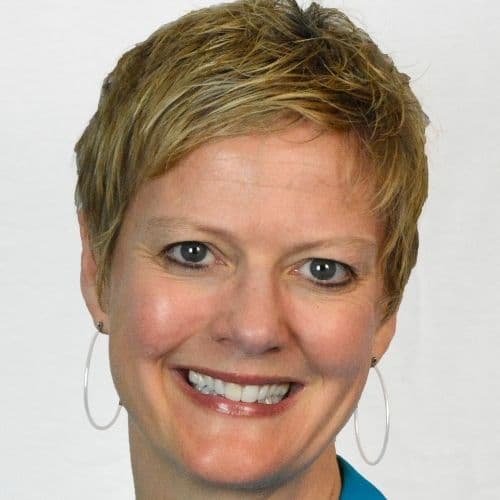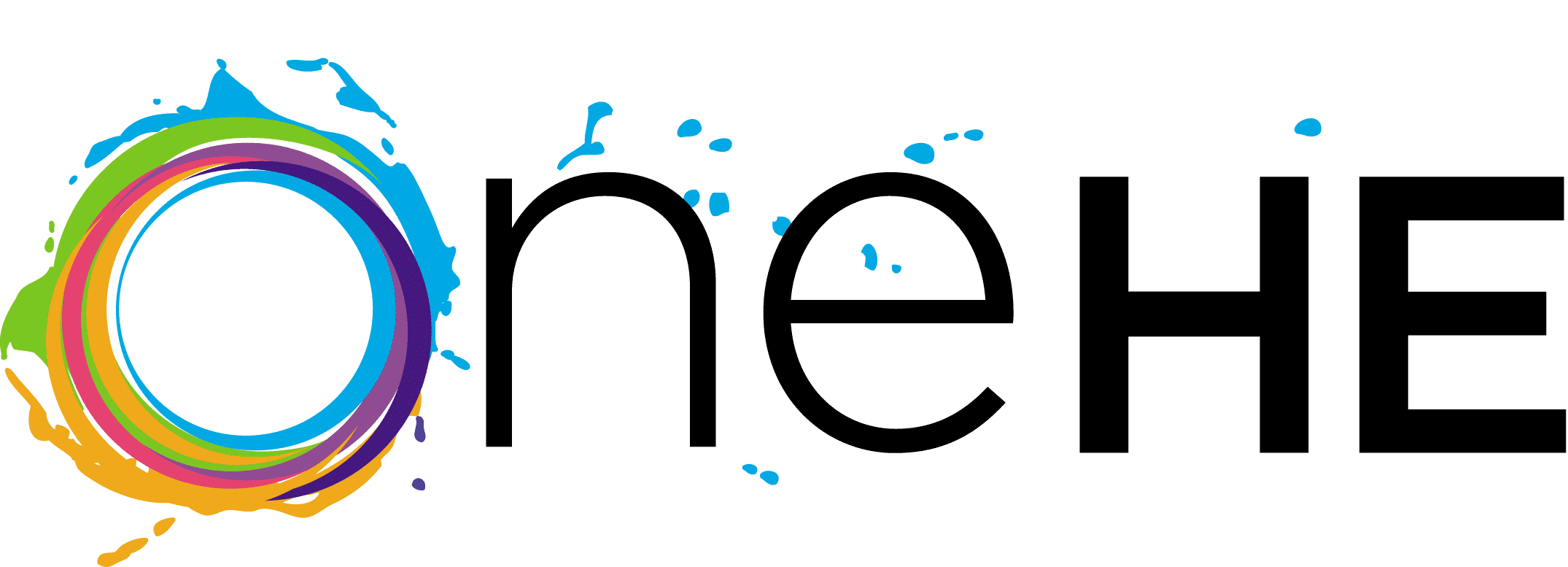Deliberate Dialogue: Discussing Academic Integrity in the Classroom

Niya Bond

Tricia Bertram Gallant

– Hi everyone, Niya Bond here, Faculty Developer at OneHE, and I’m thrilled to be here today with Tricia Bertram Gallant, we’re gonna be talking about academic integrity and Tricia is an expert and specialist in that topic. Tricia is the Academic Integrity Director at the University of California San Diego, Board Emeritus of the International Center for Academic Integrity, and former lecturer for both UCSD and the University of San Diego, Tricia has also published across articles, book chapters and entire books on this topic, so we really do have an expert here with us to share knowledge and ideas about academic integrity in the modern world of higher education. Welcome, Tricia.
– Thank you, thanks for having me.
– So let’s start with what academic integrity is in a small snippet and why it’s important for us to be paying attention to.
– In a small snippet, well, academic integrity, I mean the way we define it at the International Center for Academic Integrity is that the courage to uphold or be responsible, fair, trustworthy, respectful and honest even when it’s difficult to do so. So it’s a rather vague definition, not related specifically to academics, and we do that purposely because the idea here is that all of us experience stress and pressures at points in our life, whether we are students or teachers or engineers or doctors, or just people in general, and democratic society really depends on people for the most part, the majority of time making good ethical decisions when they are under that stress and pressure. We don’t want people taking shortcuts because they can’t be bothered reading the patient’s file before they decide on surgery or not, we can’t tolerate car mechanics telling us that our car is broken and charging us a whole bunch of money to fix it when it’s not broken, right? And so as a society, we need to depend on people to be able to have the courage to be honest, respectful, fair, trustworthy, and honest even when it’s difficult to do so. And so as students, that means that I do focus on what the assignment or what the assessment is asking me to do, and I do it in that way because I am responsible for… one major thing on that assessment and it is fairly and honestly demonstrating my learning or my knowledge and my abilities at that point in time, because the instructor has an ethical obligation to fairly and assess my knowledge and abilities at that point in time, so that the university can fairly and assess or fairly give out certifications, whether it’s a degree or diploma or what have you. And so what I say about academic integrity is it’s part of the moral obligation supply chain that higher education institutions have, and K through 12 institutions have with society. We promise to not only teach and develop and help students grow and learn, but to certify that they’ve done that and society depends on those certifications, they use them as proxies for knowledge and abilities, and so if we don’t have academic integrity on either the part of the students or the faculty, our certifications lose value and that obviously is very detrimental to both the institutions themselves, but the students who graduate from us and society.
– Yeah, I’m really glad you brought all of those threads and ripple effects up because when I said small snippet, I realized all the nuances and complexities and connections really make it impossible to give a small snippet because what you’re saying is these things that sometimes we think about as contained within the classroom, actually apply to the world without and what we’re doing in the classroom has relevance in terms of academia but also as you said, in society at large.
– And I think, yeah, I think when most people hear the term academic integrity they think students not cheating.
– Yes.
– Which is a negative and academic integrity is aspirational, it’s something we strive to be. We’re human beings, we’re not perfect, we’re gonna lie sometimes, we’re gonna be irresponsible sometimes, we’re gonna be disrespectful sometimes, right? So it’s the idea of we’re trying always to be more of those things, and every time we fail to be those things at least in an educational institution, we hope that someone will leverage that for a teachable moment. And it’s not just about what the student does, it’s about what the instructor does, what the institution does, and because it’s related to ethical decision making and acting, it’s related to what we do as professionals and citizens.
– That makes perfect sense. So do you encourage instructors to have these kind of open conversations with students about the importance, and where do you kind of tell educators to start when they’re beginning that conversation with learners?
– I advise them to start really at the basic level of those values. So those values, I’m gonna say them again, honesty, respect, responsibility, fairness, trustworthiness and courage, especially the first five are what we call universal values. You viscerally understand those kind of no matter where you were raised or how you were raised. Your definition of what’s fair and what’s not might differ, but you know what fairness feels like to you, you know what being disrespected feels like to you because it’s happened, right? And so that’s much more relatable than just saying, you better have academic integrity, or I’m gonna report you for cheating and that you’re gonna get in trouble. So a quick trick that I give faculty who are just starting out is… and I have a handout for this, is co-create with your students a statement of values for the class. So have those six fundamental values on the left side, have a column for students, what behaviors would the students need to do to uphold those values, and a column for the instructional team, what behaviors would we need to do to uphold those values and have students talk about that and what that does, it does two things. One, it helps the instructor see, actually my students believe the same things that I do, that being responsible means you come to class prepared, having done the work, you’re the respects that everything is… that the behaviors that come out, tell the instructor that, I don’t have a class full of cheaters, I have a class full of people who wanna do the right thing as long as they know what it is for the most part. And the second thing it does is it helps the students hear from each other. So if you do have a few students in the class who are thinking like, “Ugh, I’m just gonna like free float my way through this, I might cheat a few times,” they’re gonna hear that none of their other peers find that acceptable. And that is very powerful ’cause peer norms or perceptions of peer behaviors is one of the most powerful shapers of cheating. So it’s a quick way, you could start it asynchronously, people could comment on it on like a Google Doc or something, and then finish it off with a conversation in class, and then you remind each other of it at every assessment time.
– I love that idea and I wonder too if it’s cool to check in after those assessments and see if those values have evolved in any way or just return to them and reflect upon that.
– Yeah, I would return to it at midterm at least, so all faculty, I recommend all teachers midterm asking how it’s going, checking in with the students, listening to them, and then reporting back to them what they heard, what they will change, what they won’t change and why, and one of those re-visitings could be the statement of values, does this still work for us, have we noticed any problems with this? You can do that anonymously, so if students wanna say, “Yeah, I see other students not holding up their end of the bargain,” that’s really good information to have and again, you can feed that back to the students, “I had some students tell me that they’re very disappointed that they think that their peers aren’t upholding this particular thing, so let’s talk about it.” And that again, tells the students, ugh, I’m not just disappointing the professor but I’m disappointing my students. And again, I’m not talking about the person who’s gonna cheat in your class no matter what you do, I’m talking about the normal person, who like I said, most of the time wants to do the right thing or things in the right way.
– And I really appreciate how your philosophy and the foundation of what you’re saying is pedagogical partnerships between educators and learners and also between learners and learners because I think that point you mentioned at the beginning about catching the cheaters narrative, that kind of creates adversarial relationships where what you’re saying is collaboration, community building, partnership, all to kind of support each other in being ethical and responsible and trustworthy.
– And that, yes, and I think that’s a good summary and I would also say that that means that the instructor has to uphold their end of the bargain too, model the behaviors they’re expecting to see and take accountability when they mess up, right? So there’s nothing worse than a professor telling students no extension, no timeline extensions for these assignments, and then them coming the day that they promised feedback on the papers, saying, “Ugh, I just, I ran out of time, I need another week to give you feedback on these papers.” Right away trust is gone and just kind of not so much adversarial, but just like one way for thee and another way for me kind of feeling, and that is a lack of fairness, and that is going to encourage more students to take shortcuts or to cheat themselves.
– Yes, so that just reminds me how much creating that sense of community and belonging and really giving everyone in the teaching and learning relationship a stake in what’s happening is so important.
– Yeah, and I mean ultimately, the person at the front of the room, the instructor has more power than the student in a traditional grading system, even in an un-grading environment they ultimately still are the ones who get to tell the university what grade the student received, and so it’s not an equal relationship and I’m not trying to pretend that it is, but it still can be, the environment can still be co-created and the instructor can show that they care about what students think and they care about where students are struggling, and that’s the other piece of it too, a healthy conversation with students is about when do you think you might not… when you might be tempted to not uphold these values? Let’s talk about, because the other things that lead to cheating, are low self-efficacy. The student doesn’t think they can do it, or they think they can’t do it to the grade that they want to get, and just poor metacognition, they can’t think about what they think, they don’t know how they learn, and so they, for example, oh, I’ve got a programming assignment due next week, I’ll start it on Monday, I’ll start it on Sunday, it’ll take me like three hours, and then they start doing it and they think, oh my God, this is gonna take me 12 hours. So that lack of planning or this lack of own knowledge about their own abilities, are two other things that could lead to it. So you wanna kind of have that conversation with the students because then you can point them to resources, talk about how you can plan your quarters, strategies, those are really good conversations for TAs, if your institution has TAs, to have with students because they’re a bit closer in age usually to the numeral students, and they’re students themselves. And so they can say, “This is how I’ve done it, this is how I’ve managed my struggles. We all get into obstacles, we all get ourselves into corners that then we have to find a way out of, so this is how I’ve managed to do it.” And of course, building in ways for students to do it, like integrity extensions, right? So if you do have deadlines and we think there should be deadlines for many reasons, but that you do some kind of integrity extension or free pass, you can miss one thing or you can be late on one thing, to give students ethical avenues out of the corner that they are inevitably going to pin themselves into.
– Well, and I really love that practical suggestion that you’ve shared and also how everything that you’ve shared has been proactive, not reactive, right? It’s kind of creating opportunities to have conversation and tackle those struggles and challenges that you mentioned hopefully before they come up so that then you have the time to make the best decisions.
– And I know I can hear some instructors, many instructors, probably most instructors saying, “I don’t have time to do all this talk, I’ve got content I’ve got it covered.” So here’s my selling point on this, the things that we’re talking about not only help with integrity, but they help create a sense of belonging, so they help create a sense of belonging, so they’re good for inclusion, they’re good for students with different abilities or neurodiversity because you come across as more approachable and accepting and understanding, and so they’re gonna talk to you more about what they need to succeed in the course and therefore, you’ll hopefully get less at risk students that you have to then kind of chase after and be reactive to. And so I think a small investment of time upfront, pays off in dividends in more ways than just preventing cheating.
– One thing that I didn’t think might necessarily come up in a conversation about academic integrity, are these ideas of like a caring foundation and belonging and community building and things that maybe some people wouldn’t necessarily immediately associate with academic integrity. And so I really appreciate you making those connections for us and showing us the bigger picture and the ways that this can transfer to other strategies and techniques.
– And frankly, I think it just makes the job of teaching more pleasant. And if you enjoy your job more, you’re going to be probably a better teacher, right? And so not feeling like you’re heading into class like, oh, I’ve got 300 students, I bet you, the surveys say about 10% of students cheat at least once a year, so I’ve got 30 cheaters in here and I’ve got to design all these things to stop cheating and to catch cheating, and we do have an obligation as instructors to not ignore cheating, to not ignore when learning hasn’t happened and therefore, students are getting false grades, and therefore, if it’s a pattern, they’re getting false certifications of their knowledge and abilities, we do have that obligation, but again, we have that obligation in a positive way. It’s, my job is to facilitate and assure your learning. If I can’t assure your learning, then that’s a problem for not only for you as the individual student, because the degree’s gotta… I always tell students, the degree will get you the job but it won’t keep you the job, right? We don’t wanna give you false impressions of your abilities and your abilities to do that next thing in your life, but it’s also fair and welcomed by the students who aren’t cheating. And so you’re not creating a good sense of belonging actually if you’re ignoring cheating. So it is part of the positive way forward, just like when you’re a mother, so just like you wouldn’t let your child do something in error at home without having a talk with them, without responding to that error ’cause you want them to learn and grow from that, right? And so people don’t see that as kind of a negative or adversarial thing, they just see it as part of their job as being a parent, and my argument is that educators have the same role, or those of us in education have the same role.
– Yeah, I love that. So I wanna give you the last word here today, you’ve shared so many practical strategies that people can kind of take away and immediately implement, if you could share one final message on academic integrity with the OneHE community, what might it be?
– Well, it’s the elephant in the room, the whole generative AI influence on academic integrity. And that’s really what I’ve been talking about mostly for the last, where are we in July? Seven months since it was… or however long it’s been since it’s been launched, since November, 2022. It complicates things and it complicates things, not because, oh, now students just have another way to cheat, which is true, they do, they could easily farm out many questions that we’ve seen, many prompts to ChatGPT or Bing or Bard or whatever and have it give an answer that they copy and paste, submit as their own, absolutely. That to me is not the main problem because students have always been able to do that in different fashions, whether it’s from a friend or contract cheating or some companies online that I won’t name where you could get easy answers from, so that’s not new. What is really new is this idea of how integrated it’s going to be. So for example, in Google, as soon as a student faces a blank Word doc, there’s a thing saying, a button there saying, “Help me write.” How are we going to help students understand the line between academic integrity and cheating in that kind of environment? I was speaking with a student the other day who said, “Oh, I use ChatGPT to do this, this and this, but I didn’t have it do my work for me.” There’s a lack of awareness for all of us, students and faculty and educators in general, about where is this new line between what my colleague Philip Dawson in Australia, I’ll credit him for this, calls cognitive offloading, and cheating. And so this is the tricky thing and in this environment, it’s even more important for educators to talk about academic integrity in the ways that we’ve already discussed and then make very clear, what is the GenAI policy in this class or on this particular assignment, be very clear. Most students, again, want to follow your policy but if you don’t say anything, they’re going to use it in all sorts of ways. So tip number one, definitely say in your syllabus this fall, are you allowed to use GenAI, if yes, how, on every… make sure if you have different rules for different assignments, make sure that’s clear, and then the second thing is to obviously look at your own assessments and your prompts and your questions and are they easily offloaded to GenAI, and if they are, you’re gonna have to start… you’re gonna have to start tweaking those. And if you do allow students to use GenAI, help with that metacognition, help with the learning. So if they use it, have them submit their chat history, have them reflect on how I used it, how it helped me, what I learned, and what I thought of the output and how I edited that output, have them critically think about their use of GenAI because otherwise we’re going to be in a lot of trouble in a few years, and maybe we already are with people unable to critically discern legitimate information, facts from fiction and so that’s a key thing. If you’re gonna allow it, make sure they acknowledge it and they tell you how they used it so you can help them critically think about it but also you can see how they’re using it for your assessments and that might help you change your assessments or change your instructions for how to use it.
– Well, I really appreciate that advice and I think it’s so timely, especially as many are considering about the next semester or the next session and all of that proactive planning that’s gonna benefit them. Well, thank you…
– It’s lot of work, I feel there’s a lot on individual faculty shoulders right now, I feel for them.
– For sure and we’re just glad to have experts like you guiding the way.
– Oh, you’re welcome, it’s a pleasure.
– Thank you.
In this video, Niya Bond (Faculty Developer, OneHE) talks to Tricia Bertram Gallant (the Academic Integrity Director at the University of California, San Diego (UCSD), USA) about the importance of academic integrity and some practical strategies that you could use in your classroom to promote academic integrity.
If you want to learn more about this topic, why not take Tricia’s course on Academic Integrity In The Hybrid World.
Here are 3 strategies for integrating academic integrity into your classroom:
- Have an open conversation with your students at the beginning of the semester about academic integrity.
- Co-create a statement of values with your students and let them reflect on the following six fundamental values: honesty, respect, responsibility, fairness, trustworthiness, and courage. Revisit the statement of values with your students at the beginning, mid, and end of semester, or at every assessment time.
- Consider creating a policy on using GenAI (generative artificial intelligence) such as ChatGPT or Google Bard.
Discussion Question: How do you/might you communicate the importance of academic integrity to your learners, and why?

